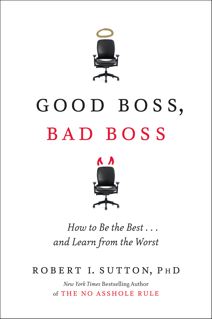Positive Leadership Limited is a strategic leadership and corporate finance advisory firm. We use our considerable experience to provide unique perspectives and innovative solutions which help corporate leaders unlock maximum value from complex business challenges. There is no dress rehearsal for delivering answers to critical business challenges. When you are under intense pressure to succeed, we help deliver the vitally important marginal gains which let your business excel and win.
Thursday, December 30, 2010
Preparing for the New Year

How to Lead (part 2)
How to Lead (part 2)

Tuesday, December 28, 2010
How to Lead (part 1)
How to Lead (part 1)
14 Ways to Keep Your Team Engaged
Boost engagement and motivate your employees by being warmer, more honest and less quick to anger. Your team will then judge you by your action, moods, and behaviours, not by your intent.
14 Ways to Keep Your Team Engaged
Monday, December 27, 2010
Why We Have Too Few Women Leaders
Why We Have Too Few Women Leaders
Wednesday, December 22, 2010
The Path to Peak Performance
The Path to Peak Performance

Tuesday, December 21, 2010
What Makes Leaders Tick?
What Makes Leaders Tick?
Monday, December 20, 2010
Young Women in Leadership
Young Women in Leadership
Tuesday, December 14, 2010
Developing Great Leaders
For more, see - http://www.sltrib.com/business/ci_14636149
Developing Great Leaders
Monday, December 13, 2010
I Never Want To Hear You Say ' I Can't Do It'
I Never Want To Hear You Say ' I Can't Do It'

Sunday, December 12, 2010
Positive Leadership
Positive Leadership
Saturday, December 11, 2010
The Capacities of Great Leaders
The Capacities of Great Leaders
Friday, December 10, 2010
Excellence & Success
Excellence & Success

Thursday, December 09, 2010
Performance and Fulfillment
Performance and Fulfillment

Wednesday, December 08, 2010
Change the Process, Change the Result
Change the Process, Change the Result

Tuesday, December 07, 2010
Projecting a Leadership Presence
Projecting a Leadership Presence
Monday, December 06, 2010
Decision Making at GE
Decision Making at GE

Decision Making in a Crisis
Decision Making in a Crisis

Sunday, December 05, 2010
How to Treat People
How to Treat People

Saturday, December 04, 2010
The Snowstorm Study: A Classic Study of Employee Commitment
The Snowstorm Study: A Classic Study of Employee Commitment

Chinese, Indian Workers Give Bosses Top Marks
Chinese, Indian Workers Give Bosses Top Marks
Friday, December 03, 2010
Making Choices
Making Choices

Thursday, December 02, 2010
Keep Your Team Smiling
- Give them a warm initial welcome.
- Provide lots of information and printed materials. Make sure the answers to all their questions are easy to find and understand. Create FAQs about everything.
- Say “good bye” and “thank you” when you’re done, always.
- Let them take stuff with them, to read and absorb it when they can, and have it when and how and where they need it.
- Set high standards for yourself and make sure you apply those standards to them.
- You like getting as much information, in a friendly and relaxed environment, as you can get — so will they.
- You want to be treated with respect and sensitivity — so will they.
- You want to know how you’re doing and what’s really going on — so will they.
- You want to feel comfortable — so will they.
- You’ll want answers to your questions — so will they.
- Be attentive, communicate well, articulate your thoughts understandably, listen to questions about what you just said, resolve conflicts and confusion, and respond appropriately — all the things effective managers are supposed to do that employees appreciate.
- And if they appreciate you, they’ll follow you.
- Remember: “People don’t care what you ask them to do as long as they know you care”.
- If they meet or exceed your expectations, let them know! How often have you been in the situation where you’re doing what’s expected and nobody says anything? It’s disheartening.
- Decide what you can and should you do to recognise those efforts (after all, isn’t that what you asked them to do?
- Never ignore the behaviours you want repeated — start telling the people who meet or exceed your expectations how good they are and how much you appreciate their efforts.
- Don’t say you don’t trust them. You hired them, so now you need to listen to them and use their experience to make things as good as they need to be.
- Give them the tools they need to do what’s expected — everybody’s okay with doing more with less; most won’t put up with doing it with nothing.
- Forget consistent — unless two separate circumstances are identical, consistency is far less important than fairness.
- “Play the face.” It means you look someone in the eye and use your experience, common sense and judgement to do what’s right. In the end, that’s all anyone asks for and can expect. Done right, this promotes trust and respect.
Keep Your Team Smiling

Wednesday, December 01, 2010
Winning Breeds Winning
Winning Breeds Winning

Tuesday, November 30, 2010
Positive Leadership and Elite Sport
Positive Leadership and Elite Sport
Creating Meaningful Corporate Values
Creating Meaningful Corporate Values
Monday, November 29, 2010
Servant Leadership In the Workplace
Servant Leadership In the Workplace

Sunday, November 28, 2010
Asking the Right Questions
Asking the Right Questions

Saturday, November 27, 2010
How Companies Can Develop Critical Thinkers and Creative Leaders
How Companies Can Develop Critical Thinkers and Creative Leaders

Friday, November 26, 2010
Persistence Wins!
Persistence Wins!
Thursday, November 25, 2010
Happy Thanksgiving!
Please remember at this special time that everyone we interact with is a chance to create a remarkable experience.
Happy Thanksgiving!

Wednesday, November 24, 2010
Aligning Behaviour Around Values
Aligning Behaviour Around Values
Tuesday, November 23, 2010
What is an Authentic Organisation?
- The organisation knows ‘who it is” and what characteristics make it distinctive.
- People in the organisation understand why these distinctive features are meaningful.
- The organisation knows what it is striving to create in this world. It has a sense of purpose that goes beyond the products and services it offers.
- The organisation knows how its distinctiveness fuels and adds unique insight to the pursuit of organisation’s purpose.
- The organisation has a few signature actions, behaviours and products that bring to life the organisation’s meaning, and move it towards its purpose.
- Both the purpose and the distinctive, meaningful characteristics of the organisation resonate with stakeholders and draw members, customers, and constituencies to the organisation.
- The organisation actively supports its members, customers, and constituencies in their own authenticity as they work with the organisation to achieve its purpose.
What is an Authentic Organisation?

Monday, November 22, 2010
Positive Leadership
Positive Leadership
Sunday, November 21, 2010
It Is About You
It Is About You
Saturday, November 20, 2010
Use Failure to Grow Your Business
Use Failure to Grow Your Business

Friday, November 19, 2010
Dominating Leaders Make Worse Decisions
The study suggests that while it is important for leaders to exude authority and competence, the evidence suggests that appearing too powerful will inhibit their team members from expressing an opinion. This harms the ability to make good decisions by excluding arguments and evidence from the decision-making process.
Dominating Leaders Make Worse Decisions
Thursday, November 18, 2010
Doing What We Already Know
Doing What We Already Know
Wednesday, November 17, 2010
Positive Leadership Limited - The Power of Sound Advice™
For more information, please contact: graham.watson@positiveleadership.co.uk
Positive Leadership Limited - The Power of Sound Advice™

Building Power and Leadership
Building Power and Leadership



























%20color%20logo%20101707.jpg)












